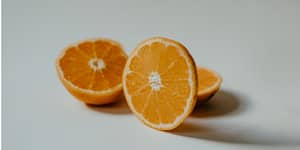[grwebform url=”https://app.getresponse.com/view_webform_v2.js?u=wfNAY&webforms_id=57753701″ css=”on” center=”off” center_margin=”200″/]
A Guide to Anti-Aging Vitamins
Did you know that your diet is one of the most important ways to maximize youth and beauty? There are several vitamins that can help reduce the signs of aging. These nutrients are a powerful tool to have in your anti-aging toolbox.
First of all, we will discuss the anti-oxidant vitamins; Vitamin A, Vitamin C, and Vitamin E. These vitamins are ACE in the fight against aging!
Your skin is under fire all day, every day from pollution, toxins, and by products of metabolism. These are called free radicals, which cause damage to the body in general. It is believed that they can also contribute to premature aging. One way that they do this is called crosslinking. Crosslinking refers to changes that happen on a molecular level that lead to stiffness and loss of function of cells and tissues. It can also cause damage to DNA, which affects cells’ ability to repair, rejuvenate and replenish.
With regard to aging, this can lead to the skin being less supple and slower to heal, reduced eye-sight and finding it harder to get around. We can see these outward signs, but cross-linking can also cause aging inside our body. This can be due to the veins and arteries getting more rigid. When this happens, it puts pressure on the heart and can lead to heart attacks.
Vitamin C

Vitamin C helps fight one of the most familiar signs of aging: wrinkles. This is because vitamin C helps to increase collagen production; which unfortunately slows down as we get older. For this reason, vitamin C is often found in anti-aging products. Used in best-selling serums on the anti-aging counter of the pharmacy, it can also help your skin to heal and even reduce the appearance of scars.
When we age, our eyes can deteriorate due to cataracts. Cataracts are cloudy protein clumps, caused by crosslinking, that block vision. This anti-oxidant vitamin has been shown to play a part in keeping this scary aspect of aging at bay.
Most people know that citrus fruits, such as oranges, are a great source of this vitamin. But it is also found in kiwi fruit, strawberries, tomatoes and some vegetables such as bell peppers, broccoli and even sprouts. You need to eat these foods every day as Vitamin C cannot be stored in the body.
Vitamin E
Vitamin E is a powerful, fat-soluble antioxidant that is widely used for its anti-aging properties. This vitamin has been found, alongside vitamin C, to protect the body against collagen aging. This can help with skin, eye and cardiovascular aging. It would seem that the combination of vitamin E and C is a powerhouse against aging.
Vitamin E protects skin against UV light by absorbing the harmful rays. For this reason, applying Vitamin E cream to the skin, as well as eating foods rich in this vitamin is a good anti-aging tip. Another good reason to apply Vitamin E cream is that it provides the body with a slightly different form of this anti-oxidant vitamin. So the skin is protected from both the inside out and vice versa.
To get your daily hit of this powerful vitamin, include lots of nuts (especially almonds), seeds, avocado, mango and greens in your diet. The best greens are beet greens and spinach. And don’t waste the beet itself, as it contains skin-friendly vitamin C.
Vitamin A

Vitamin A stimulates cells to repair and rejuvenate. This is important because as we age, our skin becomes drier and less elastic, meaning that wrinkles are more likely to form (9). Vitamin A comes in the form of carotenoids, but for the body to use them, they have to be converted by the liver, into retinol.
When applied to the skin, Vitamin A, aka retinol, is absorbed deep into the layers. It then goes to work to help slow down premature aging. You may have noticed that skincare products contain retinol. Now you know why.
To keep your body healthy and young from the inside out, you need to eat lots of foods rich in carotenoids. There are no prizes for knowing that this includes carrots. Other foods that contain it are, like carrots, orange in colour and include sweet potatoes, mango, apricots and cantaloupe melon. But leafy greens, bell peppers, salmon and dairy products also deliver a good helping of vitamin A.
Vitamin B12
Vitamin B12, also known as cobalamin, is especially important for older adults. This is because the ability to absorb this vitamin through the digestive tract declines with age. As we get older, stomach acid and digestive enzymes are reduced. This vitamin is essential for the formation of red blood cells and healthy nerve function. Vitamin B12 also aids in the production of genetic materials such as DNA and RNA, which carry the body’s instructions for everything from how to build a cell membrane to when to grow or slow down during development.
So, as we age, it is important that we eat plenty of foods that contain it. These foods are mostly animal foods such as beef liver, tuna, salmon, minced/ground beef, eggs and dairy foods such as milk, yoghurt and cheese. However, the body is able to access the vitamin B12 in dairy foods better than in meat.
Low levels of vitamin B12 can lead to a condition called pernicious anaemia, which causes fatigue and weakness. Nothing makes you feel, and look, old like being tired all the time. When this happens, your doctor will usually recommend having a regular B12 injection.
***
Vitamin D: the most Naturally Occurring of the Anti-Aging Vitamins

As we age, especially women, our bones can lose strength and become brittle. This can lead to broken bones, which when you are elderly, can be life-threatening. Vitamin D plays an important role in bone health; helping our bodies use calcium and phosphorus.
There are not many foods that provide vitamin D in the diet, so getting enough sunshine is essential. The foods that do contain it are oily fish, such as mackerel, sardines and pilchards, as well as cereals and bread that have been fortified with vitamin D. Alternatively, a good quality supplement is essential to maintain bone health, especially during our advancing years.
Every single cell in the body is able to use vitamin D, so this nutrient is extremely important in keeping cells and body tissue healthy. Unfortunately, vitamin D is often deficient in many people, which contributes to aging and contracting life-limiting diseases such as cancer.
Going Forward with Anti-Aging Vitamins
We have discussed which vitamins are vital in the fight against aging, but some people may dislike some of the foods that contain these nutrients. It is, therefore, worth considering having quality supplements as a back-up.
Not everyone needs supplements, especially if they’re eating a full range of healthy foods. But there are some older adults who do prefer to take them. It gives them the reassurance that their body has all it needs in order to stay strong throughout any challenges life throws at them, whilst vying against time itself.
Click here to connect with our section dedicated to Intermittent Fasting.
Read what Wikipedia has to say about anti-aging vitamins (supplements).
[grwebform url=”https://app.getresponse.com/view_webform_v2.js?u=wfNAY&webforms_id=57753701″ css=”on” center=”off” center_margin=”200″/]

